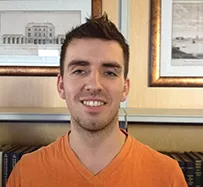Key Info
Bachelor of Science (Education) in Biology with Physics or Chemistry or Agricultural Science
If you are considering a career in teaching and have a strong interest in science, this may be the course for you. This four-year programme attracts students who have excellent communication skills, and are strongly motivated and passionate about science teaching.
Graduates of the degree programme are eligible for appointment to all second level schools (vocational, secondary, community and comprehensive schools), and for registration with the Teaching Council. The primary aim of the programme is the attainment of a professional competence in teaching, and the majority of graduates pursue a career in second-level science teaching.
Why Study Bachelor of Science (Education) in Biology with Physics of
Chemistry or Agricultural Science at UL?
UL's School of Education is the largest post-primary teacher education provider in the state and is ranked in the top 100 universities in the world for Education programmes. University of Limerick is also ranked within the top 75 universities in Europe for excellence in teaching and learning.
The aim of the programme is to educate young teachers and help them develop the skills and aptitudes to confidently face the challenges of science teaching. When you graduate from the programme you will be qualified to teach;
- Leaving Certificate Biology
- Leaving Certificate Physics or Leaving
- Certificate Chemistry or Leaving
- Certificate Agricultural Science
- Junior Cycle Science
Learn more about our courses and upcoming events
What you will study
The programme is four years in duration and is based on the concurrent model of teacher education, in which educational studies and studies in biology, along with your chosen elective (chemistry or physics or agricultural science) are combined with periods of school placement in which you will gain experience of teaching.
You will study education theory and practice which will equip you with teaching aptitudes and skills on which you will build a sound philosophy and approach to teaching including a focus on preparing you to teach the revised science specification at junior cycle. There are two periods of school placement during the course.
The first, of ten weeks, occurs in Year 2, and the second, of ten weeks, occurs in Year 4. During school placement, you will be supervised by an academic staff member and undertake assigned coursework.
Throughout the four years, there is a strong emphasis on acquiring practical scientific skills through laboratory work, field work and assignments. The science pedagogics modules in your degree have been designed in close collaboration with the National Council for Curriculum and Assessment (who designed the new specifications) and the Junior Cycle for Teachers (who are tasked with associated professional development for teachers). This ensures that graduates are thoroughly prepared for the totality of science education in Irish schools which is well aligned with international best-practice.
This programme is offered jointly by the Faculty of Education and Health Sciences, and the Faculty of Science and Engineering.
|
CODE |
YEAR 1 - SEMESTER 1 |
ECTS |
CODE |
YEAR 1 - SEMESTER 2 |
ECTS |
|
|
EN4051 |
CONTEMPORARY UNDERSTANDINGS AND THINKING ON EDUCATION: PHILOSOPHICAL PERSPECTIVES |
6 |
EN4042 |
PROFESSIONAL DIGITAL COMPETENCE FOR TEACHING |
6 |
|
|
CH4701 |
GENERAL CHEMISTRY 1 |
6 |
EN4052 |
UNDERSTANDING YOUNG PEOPLE AND HOW THEY LEARN: PSYCHOLOGICAL PERSPECTIVES |
6 |
|
|
LS4003 |
INTRODUCTORY ANATOMY AND PHYSIOLOGY |
6 |
CH4252 |
INORGANIC CHEMISTRY 1B |
6 |
|
|
BY4001 |
BIOLOGY 1 |
6 |
CH4002 |
PHYSICAL CHEMISTRY 1 |
6 |
|
|
|
|
|
BY4002 |
BIOLOGY 2 |
6 |
|
|
|
Total Credits Semester 1 |
24 |
|
Total Credits Semester 2 |
30 |
|
|
|
Total ECTS Credits Year 1 = 54 |
|||||
|
CODE |
YEAR 2 - SEMESTER 3 |
ECTS |
CODE |
YEAR 2 - SEMESTER 4 |
ECTS |
|
|
EN4033 |
PLANNING FOR LEARNING |
6 |
EN4054 |
UNDERSTANDING CLASSROOM PRACTICES |
6 |
|
|
SE4034 |
INTRODUCTION TO SCIENCE PEDAGOGY |
6 |
TP4024 |
SCHOOL PLACEMENT 1 |
24 |
|
|
CH4013 |
ORGANIC CHEMISTRY |
6 |
|
|
|
|
|
CH4303 |
ANALYTICAL CHEMISTRY 1A |
6 |
|
|
|
|
|
BY4013 |
GENERAL MICROBIOLOGY |
6 |
|
|
|
|
|
BY4015 |
PLANT PHYSIOLOGY |
6 |
|
|
|
|
|
|
Total Credits Semester 3 |
36 |
|
Total Credits Semester 4 |
30 |
|
|
|
Total ECTS Credits Year 2: 66 |
|
||||
|
CODE |
SEMESTER 5 |
ECTS |
CODE |
SEMESTER 6 |
ECTS |
|
|
EN4035 |
CURRICULUM AND ASSESSMENT, POLICY AND PRACTICE |
6 |
EN4046 |
DIVERSITY OF LEARNERS: INCLUSION AND SPECIAL EDUCATIONAL NEEDS |
6 |
|
|
EN4045 |
DIVERSITY AND SOCIAL JUSTICE IN EDUCATION SOCIOLOGICAL PERSPECTIVES |
6 |
SE4016 |
ADVANCED SCIENCE PEDAGOGY |
6 |
|
|
CH4253 |
INORGANIC CHEMISTRY 2B |
6 |
CH4304 |
ANALYTICAL CHEMISTRY 2 |
|
|
|
CH4003 |
PHYSICAL CHEMISTRY 2 |
6 |
BY4023 |
ANIMAL DIVERSITY |
6 |
|
|
BY4035 |
CELLULAR BIOLOGY AND BIOCHEMISTRY |
6 |
BY4104 |
ECOLOGY 1 |
6 |
|
|
|
Total Credits Semester 5 |
30 |
|
Total Credits Semester 6 |
30 |
|
|
|
Total ECTS Credits Year 3: 60 |
|
||||
|
CODE |
SEMESTER 7 |
ECTS |
CODE |
SEMESTER 8 |
ECTS |
|
|
TP4027 |
School Placement 2 |
30 |
EN4018 |
TEACHER AS PROFESSIONAL |
6 |
|
|
|
|
|
CH4027 |
NANOTECHNOLOGY |
6 |
|
|
|
|
|
CH4104 |
ORGANIC CHEMISTRY 3 |
6 |
|
|
|
|
|
BY4008 |
GENETICS AND MOLECULAR BIOLOGY |
6 |
|
|
|
|
|
BY4214 |
PRINCIPLES OF HUMAN NUTRITION |
6 |
|
|
|
Total Credits Semester 7 |
30 |
|
Total Credits Semester 8 |
30 |
|
|
|
Total ECTS Credits Year 4: 60 |
|
||||
|
|
Total Credits Year 1, 2, 3, 4 = 240 |
|||||
|
CODE |
YEAR 1 - SEMESTER 1 |
ECTS |
CODE |
YEAR 1 - SEMESTER 2 |
ECTS |
|
|
EN4051 |
CONTEMPORARY UNDERSTANDINGS AND THINKING ON EDUCATION |
6 |
EN4042 |
PROFESSIONAL DIGITAL COMPETENCE FOR TEACHING |
6 |
|
|
PH4131 |
MECHANICS/HEAT/ELECTRICITY/MAGNETISM |
6 |
EN4052 |
UNDERSTANDING YOUNG PEOPLE AND HOW THEY LEARN |
6 |
|
|
PH4051 |
MEASUREMENT AND PROPERTIES OF MATTER |
6 |
PH4102 |
WAVES/LIGHT/MODERN PHYSICS |
6 |
|
|
BY4001 |
BIOLOGY 1 |
6 |
PH4092 |
SEMICONDUCTOR DEVICES |
6 |
|
|
|
|
|
BY4002 |
BIOLOGY 2 |
6 |
|
|
|
Total Credits Semester 1 |
24 |
|
Total Credits Semester 2 |
30 |
|
|
|
Total ECTS Credits Year 1 = 54 |
|||||
|
CODE |
YEAR 2 - SEMESTER 3 |
ECTS |
CODE |
YEAR 2 - SEMESTER 4 |
ECTS |
|
|
EN4033 |
PLANNING FOR LEARNING |
6 |
EN4054 |
UNDERSTANDING CLASSROOM PRACTICES |
6 |
|
|
SE4034 |
INTRODUCTION TO SCIENCE PEDAGOGY |
6 |
TP4024 |
CORE: SCHOOL PLACEMENT 1 |
24 |
|
|
PH4613 |
FORCES, POTENTIAL AND FIELDS |
6 |
|
|
|
|
|
PH4013 |
EARTH SCIENCE |
6 |
|
|
|
|
|
BY4013 |
GENERAL MICROBIOLOGY |
6 |
|
|
|
|
|
LS4003 |
INTRODUCTORY ANATOMY AND PHYSIOLOGY |
6 |
|
|
|
|
|
|
Total Credits Semester 3 |
36 |
|
Total Credits Semester 4 |
30 |
|
|
|
Total ECTS Credits Year 2: 66 |
|
||||
|
CODE |
SEMESTER 5 |
ECTS |
CODE |
SEMESTER 6 |
ECTS |
|
|
EN4035 |
CURRICULUM AND ASSESSMENT, POLICY AND PRACTICE |
6 |
EN4046 |
DIVERSITY OF LEARNERS: INCLUSION AND SPECIAL EDUCATIONAL NEEDS |
6 |
|
|
EN4045 |
DIVERSITY AND SOCIAL JUSTICE IN EDUCATION SOCIOLOGICAL PERSPECTIVES |
6 |
SE4016 |
ADVANCED SCIENCE PEDAGOGY |
6 |
|
|
PH4041 |
OPTICS |
6 |
PH4042 |
THERMAL PHYSICS |
6 |
|
|
BY4015 |
PLANT PHYSIOLOGY |
6 |
BY4023 |
ANIMAL DIVERSITY |
6 |
|
|
BY4035 |
CELLULAR BIOLOGY AND BIOCHEMISTRY |
6 |
BY4104 |
ECOLOGY 1 |
6 |
|
|
|
Total Credits Semester 5 |
30 |
|
Total Credits Semester 6 |
30 |
|
|
|
Total ECTS Credits Year 3: 60 |
|
||||
|
CODE |
SEMESTER 7 |
ECTS |
CODE |
SEMESTER 8 |
ECTS |
|
|
TP4027 |
Core Module: Placement |
30 |
EN4018 |
TEACHER AS PROFESSIONAL |
6 |
|
|
|
|
|
PH4072 |
ELECTROMAGNETISM |
6 |
|
|
|
|
|
PH4132 |
MODERN PHYSICS |
6 |
|
|
|
|
|
BY4008 |
GENETICS AND MOLECULAR BIOLOGY |
6 |
|
|
|
|
|
BY4214 |
PRINCIPLES OF HUMAN NUTRITION |
6 |
|
|
|
Total Credits Semester 7 |
30 |
|
Total Credits Semester 8 |
30 |
|
|
|
Total ECTS Credits Year 4: 60 |
|
||||
|
|
Total Credits Year 1, 2, 3, 4 = 240 |
|||||
|
CODE |
YEAR 1 - SEMESTER 1 |
ECTS |
CODE |
YEAR 1 - SEMESTER 2 |
ECTS |
|
|
EN4051 |
CONTEMPORARY UNDERSTANDINGS AND THINKING ON EDUCATION |
6 |
EN4042 |
PROFESSIONAL DIGITAL COMPETENCE FOR TEACHING |
6 |
|
|
CH4701 |
GENERAL CHEMISTRY 1 |
6 |
EN4052 |
UNDERSTANDING YOUNG PEOPLE AND HOW THEY LEARN |
6 |
|
|
PH4051 |
MEASUREMENT AND PROPERTIES OF MATTER |
6 |
BY4026 |
HORTICULTURE |
6 |
|
|
BY4001 |
BIOLOGY 1 |
6 |
CH4002 |
PHYSICAL CHEMISTRY |
6 |
|
|
|
|
|
BY4002 |
BIOLOGY 2 |
6 |
|
|
|
Total Credits Semester 1 |
24 |
|
Total Credits Semester 2 |
30 |
|
|
|
Total ECTS Credits Year 1 = 54 |
|||||
|
CODE |
YEAR 2 - SEMESTER 3 |
ECTS |
CODE |
YEAR 2 - SEMESTER 4 |
ECTS |
|
|
EN4033 |
PLANNING FOR LEARNING |
6 |
EN4054 |
UNDERSTANDING CLASSROOM PRACTICES |
6 |
|
|
SE4034 |
INTRODUCTION TO SCIENCE PEDAGOGY |
6 |
TP4024 |
CORE: SCHOOL PLACEMENT 1 |
24 |
|
|
BY4215 |
SOIL SCIENCE |
6 |
|
|
|
|
|
BY4055 |
ANIMAL FEEDING AND DIGESTION |
6 |
|
|
|
|
|
BY4013 |
GENERAL MICROBIOLOGY |
6 |
|
|
|
|
|
LS4003 |
INTRODUCTORY ANATOMY AND PHYSIOLOGY |
6 |
|
|
|
|
|
|
Total Credits Semester 3 |
36 |
|
Total Credits Semester 4 |
30 |
|
|
|
Total ECTS Credits Year 2: 66 |
|
||||
|
CODE |
SEMESTER 5 |
ECTS |
CODE |
SEMESTER 6 |
ECTS |
|
|
EN4035 |
CURRICULUM AND ASSESSMENT, POLICY AND PRACTICE |
6 |
EN4046 |
DIVERSITY OF LEARNERS: INCLUSION AND SPECIAL EDUCATIONAL NEEDS |
6 |
|
|
EN4045 |
DIVERSITY AND SOCIAL JUSTICE IN EDUCATION SOCIOLOGICAL PERSPECTIVES |
6 |
SE4016 |
ADVANCED SCIENCE PEDAGOGY |
6 |
|
|
BY4025 |
CROP AND GRASSLAND SCIENCE |
6 |
BY4016 |
ANIMAL PRODUCTION SYSTEMS |
6 |
|
|
BY4015 |
PLANT PHYSIOLOGY |
6 |
BY4023 |
ANIMAL DIVERSITY |
6 |
|
|
BY4035 |
CELLULAR BIOLOGY AND BIOCHEMISTRY |
6 |
BY4104 |
ECOLOGY 1 |
6 |
|
|
|
Total Credits Semester 5 |
30 |
|
Total Credits Semester 6 |
30 |
|
|
|
Total ECTS Credits Year 3: 60 |
|
||||
|
CODE |
SEMESTER 7 |
ECTS |
CODE |
SEMESTER 8 |
ECTS |
|
|
TP4027 |
Core Module: Placement |
30 |
EN4018 |
TEACHER AS PROFESSIONAL |
6 |
|
|
|
|
|
BY4036 |
AGRICULTURAL BIOTECHNOLOGY |
6 |
|
|
|
|
|
BY4505 |
POLLUTION BIOLOGY |
6 |
|
|
|
|
|
BY4008 |
GENETICS AND MOLECULAR BIOLOGY |
6 |
|
|
|
|
|
BY4214 |
PRINCIPLES OF HUMAN NUTRITION |
6 |
|
|
|
Total Credits Semester 7 |
30 |
|
Total Credits Semester 8 |
30 |
|
|
|
Total ECTS Credits Year 4: 60 |
|
||||
|
|
Total Credits Year 1, 2, 3, 4 = 240 |
|||||
Entry requirements
| CAO points history |
499
|
|---|---|
| Minimum grades |
Applicants are required to hold at the time of enrolment the established Leaving Certificate (or an approved equivalent) with a minimum of six subjects which must include: Two H5 (Higher level) grades and Four O6 (Ordinary level) grades or four H7 (Higher Level) grades. Subjects must include Mathematics, Irish or another language, and English. |
| Subject requirements |
In addition, applicants must hold an O3/ H7 grade in Mathematics and an O4/ H7 grade in at least one of the following: Biology, Physics, Chemistry, Physics with Chemistry, Agricultural Science. Garda Vetting is required for this programme. |
| Additional considerations |
We welcome applications from mature students. Mature applicants must apply through the Central Applications Office (CAO) by 1 February. Application information for mature student applicants QQI Pathways information available here. Note: the University’s Special Mathematics Examination is applicable to this programme. |
| Non-EU Entry Requirements |
|
How to apply
| Where are you applying from? | How to Apply |
|---|---|
| Ireland | Irish students must apply to UL via the CAO. More information can be found here. |
| The UK | Students who have completed their A-Levels can apply to UL via the CAO. More information can be found on the Academic Registry website. |
| The EU | EU Students can apply to UL via the CAO. More information can be found on the Academic Registry website. |
Fees and funding
Student course fees are broken into three components - Student contribution, Student Levy and Tuition Fees.
A number of illustrative examples of fees for this course based on the current fee levels have been set out in the tables below.
An explanation of the components, how to determine status and the criteria involved is provided below the examples as is a list of possible scholarships and funding available.
EU Students with Free fees status in receipt of a SUSI grant
| HEA pays | Tuition Fees | €4,262 |
| SUSI pays | Student contribution | €3,000 |
| Student pays | Student Levy | €102 |
| Total | €7,364 |
EU Students with Free fees status not in receipt of a grant
| HEA pays | Tuition Fees | €4,262 |
| Student pays | Student contribution | €3,000 |
| Student pays | Student Levy | €102 |
| Total | €7,364 |
Students with EU fee status not in receipt of a grant
| Student pays | Tuition Fees | €4,262 |
| Student pays | Student contribution | €3,000 |
| Student pays | Student Levy | €102 |
| Total | €7,364 |
Non-EU Students
| Student pays | Tuition Fees | €21,798 |
| Student pays | Student Levy | €102 |
| Total | €21,900 |
Student course fees are comprised of the following components:
Student Contribution
Annual charge set by the government for all full-time third level students. All students are liable unless they have been approved for a grant by Student Universal Support Ireland (SUSI). Please refer to https://www.studentfinance.ie to determine your eligibility for a grant and for instructions on how to apply. The current student contribution is set at €3000.
Student Levy
All students are liable to pay the Student Levy of €102. Please note the Student Levy is not covered by the SUSI Grant.
Tuition Fees
These are based on Residency, Citizenship, Course requirements.
Review the three groups of criteria to determine your fee status as follows
-
Residency
- You must have been living in an EU/EEA member state or Switzerland for at least 3 of the 5 years before starting your course
-
Citizenship
- You must be a citizen of an EU/EEA member state or Switzerland or have official refugee status
-
Course Requirements
(all must be met)
- You must be a first time full-time undergraduate (Exceptions are provided for students who hold a Level 6 or Level 7 qualification and are progressing to a Level 8 course in the same general area of study).
- You must be undertaking a full-time undergraduate course of at least 2 years' duration
- You cannot be undertaking a repeat year of study at the same level unless evidence of exceptional circumstances eg serious illness is provided (in which case this condition may be waived)
Depending on how you meet these criteria your status will be one of the following -
- Free Fee Status: You satisfy all three categories (1, 2 and 3) and therefore are eligible for the Higher Education Authority’s Free Fees scheme.
- EU Fee Status: You satisfy both the citizenship and residency criteria but fail to satisfy the course requirements and are liable to EU fees.
- Non EU Fee Status: You do not meet either the citizenship or residency criteria and are therefore liable to Non EU fees.
More information about fees can be found on the Finance website
These scholarships are available for this course
| Title | Award | Scholarships Available |
|---|---|---|
| Frank McGourty Award | trophy | 2 |
| Johnson and Johnson WiSTEM2D Programme |
These scholarships are available for all courses
| Title | Award | Scholarships Available |
|---|---|---|
| All Ireland Scholarships - sponsored by J.P. McManus | €6,750 | 125 |
| Brad Duffy Access Scholarship | €5,000 for one year | 1 |
| Bursary for my Future Scholarship | €2,750 one off payment | 4 |
| Civic Engagement Scholarship | €1500 | 1 |
| Cooperative Education Award | 1 medal per faculty | |
| Elaine Fagan Scholarship | €1,500 | |
| Financial Aid Fund | ||
| Hegarty Family Access Scholarships | €5,000 for one year | 2 |
| Higher Education Grants & VEC Grants | ||
| Irish American Partnership Access Scholarships | €5,000 | 2 |
| Paddy Dooley Rowing Scholarship | €2,500 | |
| Plassey Campus Centre Scholarship Programme | ||
| Provincial GAA Bursaries Scheme | €750 | |
| Stuart Mangan Scholarship | ||
| The Michael Hillery and Jacinta O’Brien Athletics Scholarship | Various benefits equating to over €7,000 in value | |
| UL Sports Scholarships | Varies depending on level of Scholarship | Multiple |
Your future career
Employability skills from this degree
Education
- Problem- solving skills
- Organisational skills
- Project management
- Practical skills
- Analytical skills
- Research and analytical skills
- An ability to communicate information effectively
Science
- Communication skills, for presenting effective oral and written arguments
- IT skills
- Interpersonal skills, with the ability to work collaboratively as part of a team
- Organisation and time-management skills, for prioritising your teaching workload
- Self-management, for planning your own workload and reflecting on and improving personal practice
Further Study Options
- Master of Education
- Doctorate in Education
- Doctor of Philosophy
- Graduate Diploma in Chemical Engineering
- Master of Science in Biomedical Device Materials
Job titles for graduates with this degree
Graduates progressing directly into employment take up a wide variety of roles. The following provides a sample of initial roles listed on the Graduate Outcomes Survey by graduates approximately one year after graduation:
- Agricultural Science Secondary School Teacher
- Biology, Chemistry & Ag. Science Teacher
- Chemistry and Science Teacher
- Emirates Cabin Crew
- Laboratory Technician
- Part-Time Ag. Science And Chemistry Teacher
- Physics Teacher
- Post-Primary Teacher
- Research Assistant
- Science Teacher
- Science, Biology & Physics Teacher
- Trainee Accountant
Student Profiles

Andrea Silke
I chose Science as I felt it would be an enjoyable subject to teach, something you could really do your best with as a teacher and get the pupils really enthusiastic about. The courses here already had the Higher Diploma built into the qualification so as far as I was concerned it was where I wanted to be.
Coming into the course, I had just leaving cert. biology - no physics or chemistry - but I found with a small effort, it worked out just fine.
As part of the course requirements, we go on 6 weeks Teaching Practice during the second semester of second year. The majority of people go to a school in their home locality for these 6 weeks. I did my teaching practice in an all-girls school in Tuam, Co.Galway. As much as I missed Limerick, I loved every minute of the teaching. This experience really quenched any uncertainties I had, not to mention the nerves!
David Tidswell
The highlight of the course is definitely the teaching placement in which you are immersed completely in a school environment. During these placements, I developed great confidence in my teaching ability. The experience helps you to discover the kind of teacher you are and learn more about yourself as a person.
Here at UL, various learner support systems are in place to help those having difficulty with subjects they may not have done for Leaving Cert. Personally, I had never studied Physics at school and found that by dropping into the Science Learning Centre, I was well able to keep up with classmates. College has been THE best time of my life and choosing this course has definitely helped in making it the enjoyable experience it has been.


Jack Corrigan
I am a full-time teacher of science, biology and maths. My work-load varies from day-to-day depending on my timetable. In general, I start with some prep work followed by classes. Corrections, administration work, preparing experiments and marking exams are all part of the job. Teaching also involves liaising with parents, other teachers, guidance counsellors and other professionals. In my non-contact hours, I am involved in pastoral care, coaching, Young Scientist and various extracurricular activities with the students. There are also parent-teacher meetings, exam supervision and many other tasks associated with the teaching life. Though sometimes demanding and challenging, teaching can be very rewarding.
My course at UL prepared me superbly for my career as a teacher - it allowed me to study both Education and Science concurrently so that on graduating, I was fully qualified and ready for the workplace without the need to do a postgraduate course.
Jack’s tip:
If you want to be a Science Teacher, put your best foot forward particularly on your teaching practise, because this is the place where you learn your trade, network and make connections that can be hugely beneficial to you in your later career. Enjoy your student years - take all UL has to offer you. It’s an opportunity to explore who you are, to get to know yourself and make new friends.
